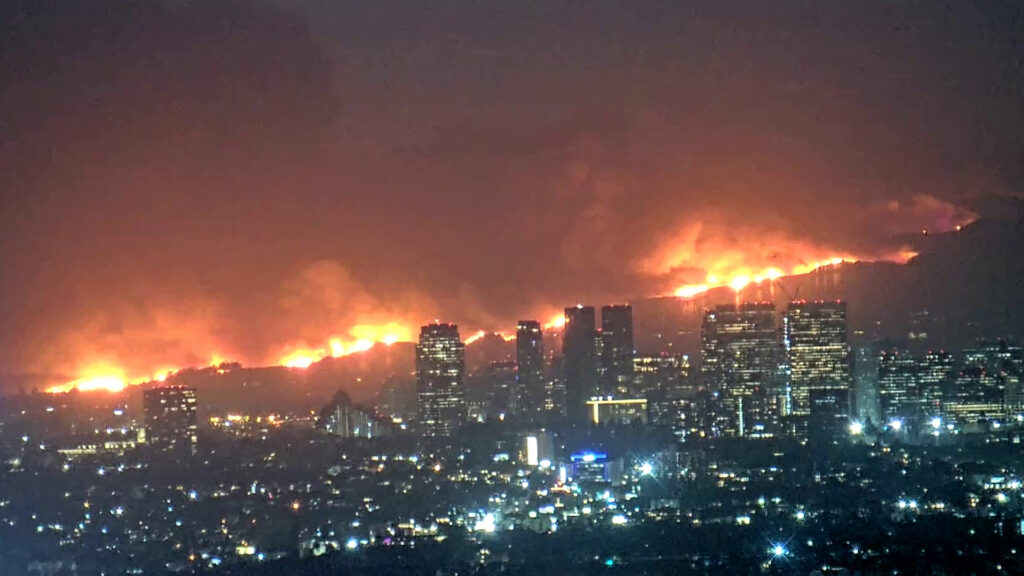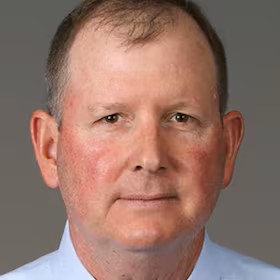By John Hill, Tampa Bay Times
Ron DeSantis and Gavin Newsom occupy different ends of the ideological spectrum, and the states they govern are political opposites, too. But Florida and California have more in common than many might acknowledge, which explains why the devastating wildfires in Los Angeles resonate here in the Sunshine State.
The blazes raging across Los Angeles have killed at least 24 people, burned some 40,000 acres and destroyed thousands of homes and businesses. Gusting winds, some reaching hurricane force, have tossed burning embers from block to block, making it difficult for firefighters to battle, much less control, the spreading inferno. More than 150,000 people were ordered from their homes in what often became last-second evacuations. It’s an apocalyptic scene still playing out in America’s second-largest city, and authorities fear conditions could worsen this week as high winds are expected to return.

The scenes on television have been numbing. Huge flames have overtaken neighborhoods day after day, consuming an area larger than Miami. To hurricane-weary Floridians, the heartbreaking stories of shock and loss are all too familiar. Natural disasters like hurricanes and wildfires not only rip apart the landscape, but the devastation unfolds over days and weeks, as remnants of once-stable lives are pushed to the curb and as everyday people stumble for the basics — a bed, clean clothes — as the weight and uncertainty over rebuilding settle in.
In short, we’ve been there. While the damage from saltwater or smoke brings a different stench, that same sense of helplessness, anger and frustration — what just happened? — has overwhelmed victims on both coasts, testing our coping abilities and capacity to imagine leading stable lives again.
The fires and hurricanes also force Floridians and Californians to rethink what it means to remain there. These are two states both blessed and cursed by geography. Warm climates year-round and stunning topography and natural environments make Florida and California tourist meccas, retirement havens and good places generally to live. Rich property markets fuel the economy and fund (for the most part) quality schools and high-caliber public services. Both states are also culturally vibrant, with world-class medicine, top research universities and thriving urban metros.
But Florida and California share a host of problems that could reshape the landscape and character of these states. Just as a warming climate threatens to bring more supercharged hurricanes to Florida, rising temperatures are drying out the west, creating more fuel for worsening wildfires.
Both states are looking at short-term solutions to their growing risks, from imposing stronger building codes to hardening their communities and infrastructure. But those steps are relatively small and remedial at best. Longer term, both states must consider larger decisions, from whether to create larger buffers in coastal and mountainous zones to whether to bar construction entirely in high-risk areas.

Redefining what it means to live in paradise won’t be easy or cheap. Florida and California already suffer from a shortage of affordable housing, and losing huge swaths of it on Florida’s Gulf coast or in greater Los Angeles won’t help those struggling there to pay the rent. And what comes of communities where the working middle that keeps society together — cops, firefighters, nurses and teachers — can’t afford to lay down roots?
DeSantis didn’t create the Florida beaches any more than Newsom invented the Santa Monica Mountains. They both inherited a gift of nature that’s fast becoming more complicated. And while polar opposites, they preside over states where residents increasingly fear that normalcy could end with unforgiving speed and totality. So, yes, Florida and California are different, but they both face a climate threat that’s fundamental, serious and growing.
John Hill is a columnist for the Tampa Bay Times. This opinion piece was originally published by the Tampa Bay Times, which is a media partner of The Invading Sea. Banner photo: A firefighter at the Palisades Fire on Jan. 8 (CAL FIRE, Public domain, via Wikimedia Commons).
Sign up for The Invading Sea newsletter by visiting here. To support The Invading Sea, click here to make a donation. If you are interested in submitting an opinion piece to The Invading Sea, email Editor Nathan Crabbe at nc*****@*au.edu.



